Fiber vs Probiotics: What is better for gut health?
Today we are talking all things gut health
Specifically, what the difference is between fiber and probiotics, two big players in the wellness of your digestion.
Your gut might be home to trillions of bacteria—but whether they’re working for you or against you can depend on two key players: probiotics and fiber. Understanding how these gut health powerhouses work (and why you need both) could be the secret to better digestion, stronger immunity, and even a happier mind.
In this post, I'll dive into both of them-- what they are, why you need them, how to incorporate more into your diet, and when it may be a good idea to supplement 🌱
The Importance of Gut Health
First things first... why does gut health even matter? Your gut does far more than just digest food—it’s deeply connected to almost every part of your health. A balanced gut microbiome (that’s the community of trillions of bacteria living in your digestive tract) supports everything from your immune system to your mood, energy, mental health, and even hormone balance. When your gut is thriving with healthy bacteria, your body can better absorb nutrients, manage inflammation, and defend against harmful bacteria or pathogens that can lead to illness.
On the flip side, when your gut microbiota becomes unbalanced—whether from poor diet, stress, lack of fiber, or overuse of antibiotics—it can lead to digestive issues like bloating, irritable bowel syndrome, or even more serious concerns like inflammatory bowel disease. But the effects don’t stop there: emerging scientific evidence links poor gut health to fatigue, mood swings, skin problems, and a higher risk of heart disease.
Prioritizing your gut health truly means prioritizing your overall health. By eating a diverse diet rich in fiber-rich foods, fermented foods, and probiotic supplements, you help maintain a strong, balanced microbiome that supports healthy digestion, immune function, and even better mental health. A healthy gut really is the foundation for a healthier, more resilient you.
Understanding the Basics
So if both probiotics and fiber are important for gut health, digestion, and overall wellness, what even are they?
Probiotics are essentially live microorganisms—aka the good bacteria your gut loves—that help keep your digestive system balanced and healthy. You can find them naturally in fermented foods like yogurt, kefir, and sauerkraut, or take them in supplement form if you want an extra boost.
Dietary fiber refers to plant-based components of the diet that the human digestive tract cannot fully break down. There are different types of fiber, including insoluble fibers, soluble fibers, and resistant starch, each with unique roles in the gastrointestinal tract, especially the large intestine and small intestine.
Both probiotics and fiber contribute to a healthy gut microbiome, the complex community of gut microbes living in your digestive tract and influencing everything from nutrient absorption to immune-system functions.
How Fiber Supports Gut and Digestive Health
One of the most important roles of dietary fiber is to support your digestive system and the beneficial bacteria living there. Here are some key mechanisms:
Keepin' things regular: Insoluble fibers (found in whole grains, vegetables, etc.) help add bulk in the large intestine, which supports regular bowel movements and helps prevent issues like abdominal pain, constipation or other digestive issues.
Feeding gut microbes: Certain forms of fiber — especially fermentable fibers and resistant starch — act as fuel for beneficial bacteria in the colon, supporting a flourishing community of healthy bacteria and helping protect against the growth of bad bacteria.
Producing beneficial compounds: When fiber is fermented in the large intestine, it produces short-chain fatty acids (SCFAs) like butyrate— which support gut lining health, nutrient absorption, and immune system communication. For example, recent reviews link high-fiber diets and fiber intake with reduced risk of colon cancer and improved gut microbiota profiles. (source)
Supporting metabolic health: Fiber intake is also associated with lower risk of heart disease and improved body-weight maintenance. The gut microbiome likely plays a mediating role. (source)
Importance of whole grains & variety: Emphasizing fiber-rich foods—whole grains, legumes, vegetables — along with a diverse diet is considered one of the best ways to promote a healthy gut microbiome.
Related Reads: My Favorite Soda to Support Gut Health: Say WHAT?!
So, how much fiber should I be eating?
Most adults in the United States aren’t getting nearly enough fiber—and your gut can tell.
The American Gastroenterological Association recommends aiming for about 25 grams of fiber per day for women and 38 grams for men (or roughly 14 grams for every 1,000 calories you eat). Unfortunately, the average person gets less than half of that. (source)
While there are a lot of fiber supplements that can be added to your routine, I always suggest starting with a food-first approach. Also, if you have been low in fiber, don’t just add a bunch all of a sudden. Slowly add more fiber-rich foods into your diet to allow for your gut to adjust without being uncomfortable (too much fiber too quickly can cause gas, bloating, or even diarrhea).
Here are some of my favorite high-fiber foods to include in my diet:
whole grains
beans- make sure to soak and cook beans well, this will help make them easier to digest while still providing a great source of fiber
lentils
vegetables
fruit
microgreens - these are a nutritional powerhouse that I have been loving lately
How Probiotics Work: Live Bacteria & Beneficial Bacteria
Now that we've got fiber out of the way, let’s talk pre- and probiotics. Probiotics operate in a somewhat different way. Remember how we talked about your gut being home to trillions of bacteria? It is normal for some of those to be “harmful” bacteria— under normal circumstances, that is not a problem because all the good bacteria keep them in check.
The problem comes when you don’t have enough good bacteria to keep them in check, or your normal bacteria levels are out of balance. This can be a result of environmental or dietary toxins, antibiotics, or the standard American diet.
By ensuring you are eating enough prebiotic foods (foods that feed your healthy gut bacteria and keep them thriving), as well as probiotic-rich foods, you keep this microbiome happy, healthy, and balanced.
Read More:
Probiotic-Rich Foods to Eat
So, how do you make sure you are getting enough of these “good guy” bacteria in your diet? It’s honestly pretty easy! Here are some of my favorite sources of probiotics:
yogurt with live active cultures
kefir— basically like a yogurt drink
fermented foods- sauerkraut, kimchi, fermented veggies
kombucha- fermented tea
I try to incorporate at least one of these foods into my diet every single day. Then, I try to hit my daily 30 gram fiber goal to make sure these colonies of good bacteria stay alive and thrivin’!
Practical Tips: How to Get the Best of Both Worlds
I hope by now, you realize that when talking about gut health, it is not one or the other. Fiber and probiotics work synergistically to help support your overall wellness. But how can you actually implement them both into your lifestyle—without making things complicated?
Here are a few practical pointers for supporting your gut health:
Target your fiber intake first — Aim for enough fiber every day. For most adults this is ~25-30 grams per day. If you are really low in fiber, start increasing the amount you take in slowly to avoid any discomfort, bloating, or gas.
Choose a variety of fiber-rich foods: Incorporate whole grains, legumes, vegetables, fruits, nuts, seeds, and resistant starch sources (like cooled cooked potatoes or unripe bananas). By choosing a variety of fibers, you support different regions of the gut and different microbial communities
Add probiotic foods: Incorporate fermented foods like yogurt, kefir, kimchi, sauerkraut—these introduce live bacteria and help maintain healthy gut bacteria in your microbiome.
Consider probiotic supplements if needed: If you have digestive issues, have had antibiotic treatment, or a specific health condition like IBS, a well-studied probiotic supplement may be appropriate. One of my favorite brands is the Thorne Complete Biotic.
Support overall health habits: As always, I’m going to tell you that one of the healthiest things you can do is focus on overall wellness. This looks like a healthy diet combined with physical activity, stress management, and limited processed foods, which helps your gut microbiome and digestive health.
Note: This blog post is for informational purposes only. It does not constitute medical advice. Always consult with a healthcare professional before starting new dietary supplements or making significant changes to your diet, especially if you have a health condition such as IBS, IBD or other digestive disorders.

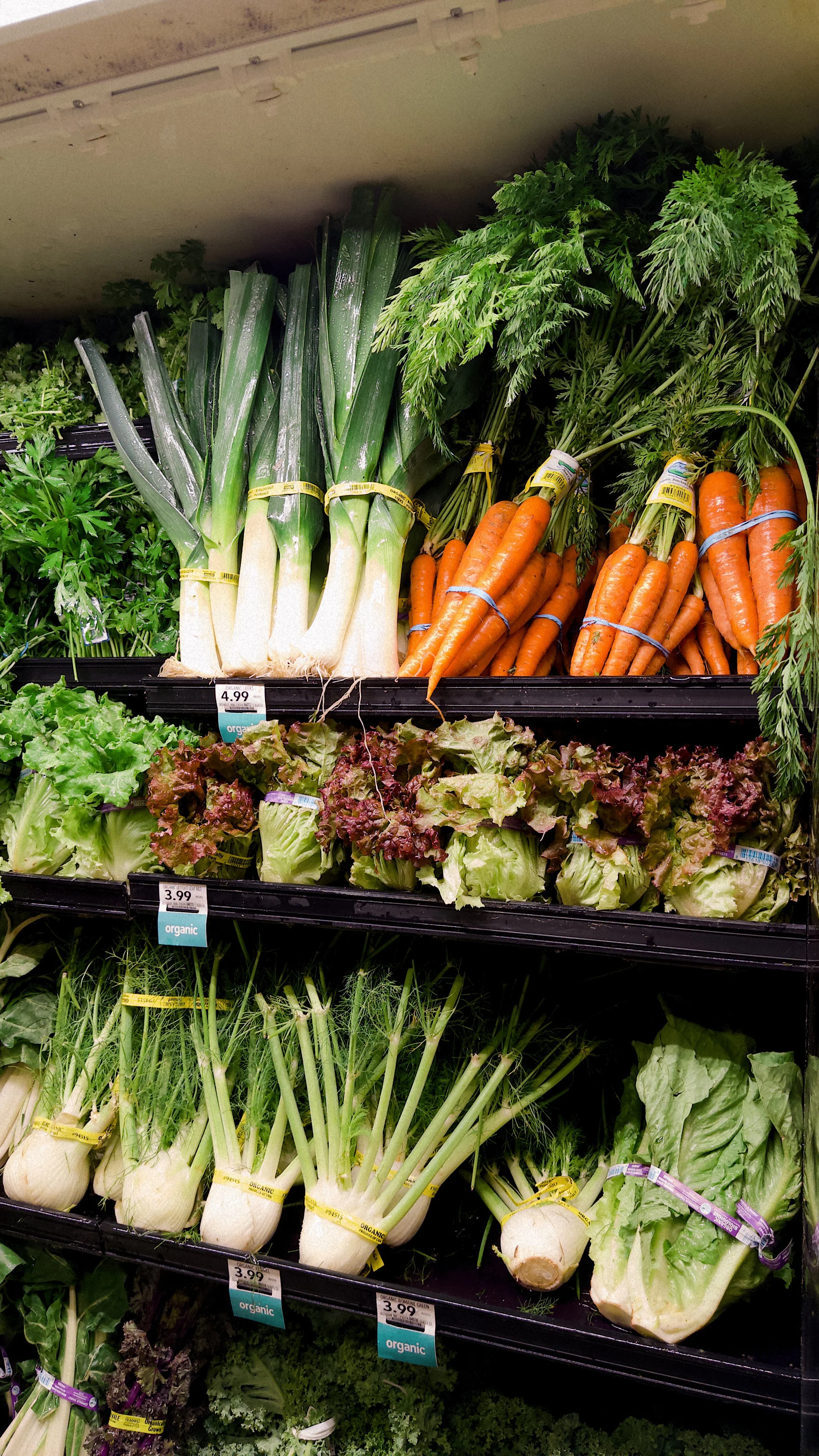
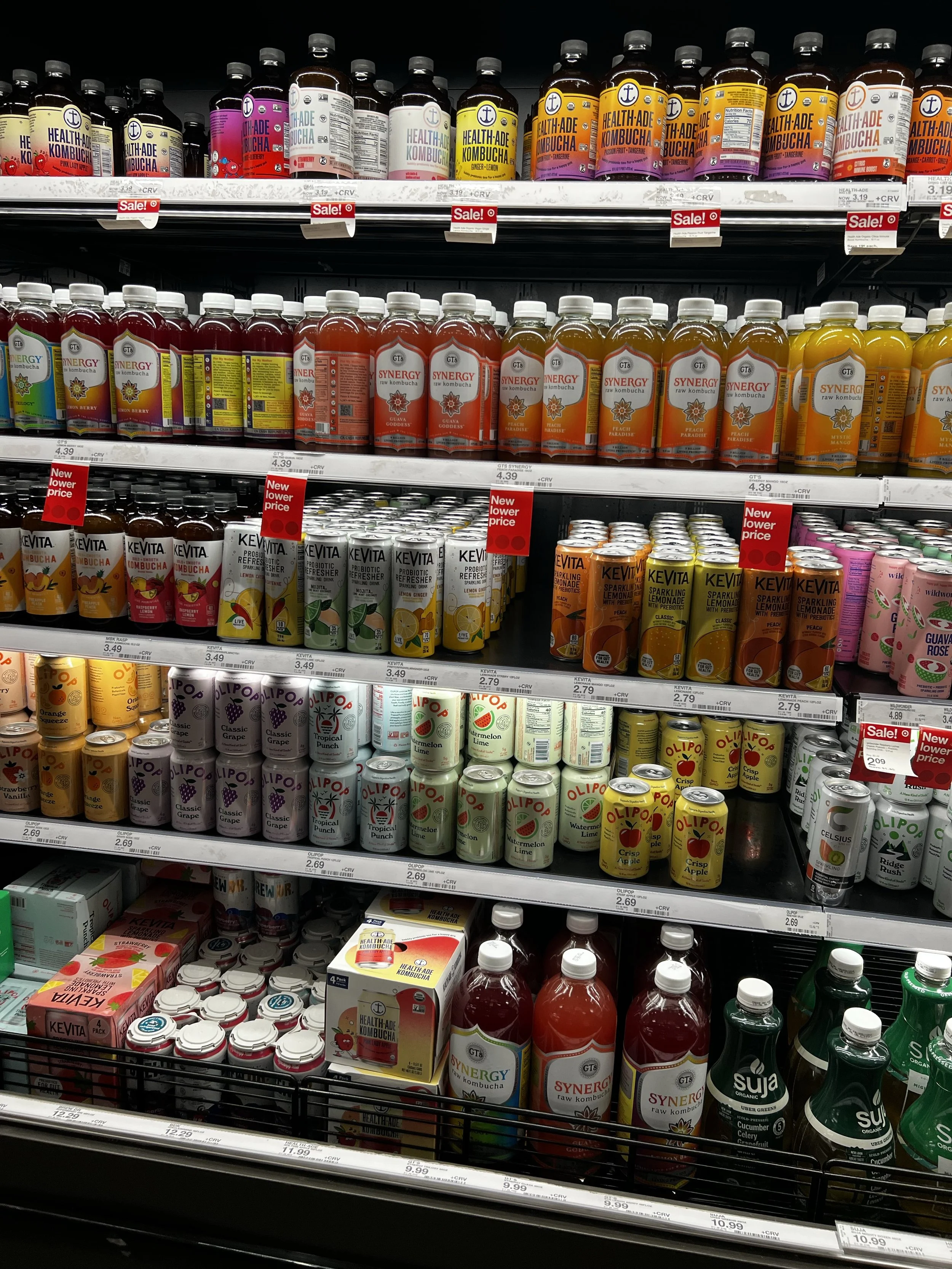

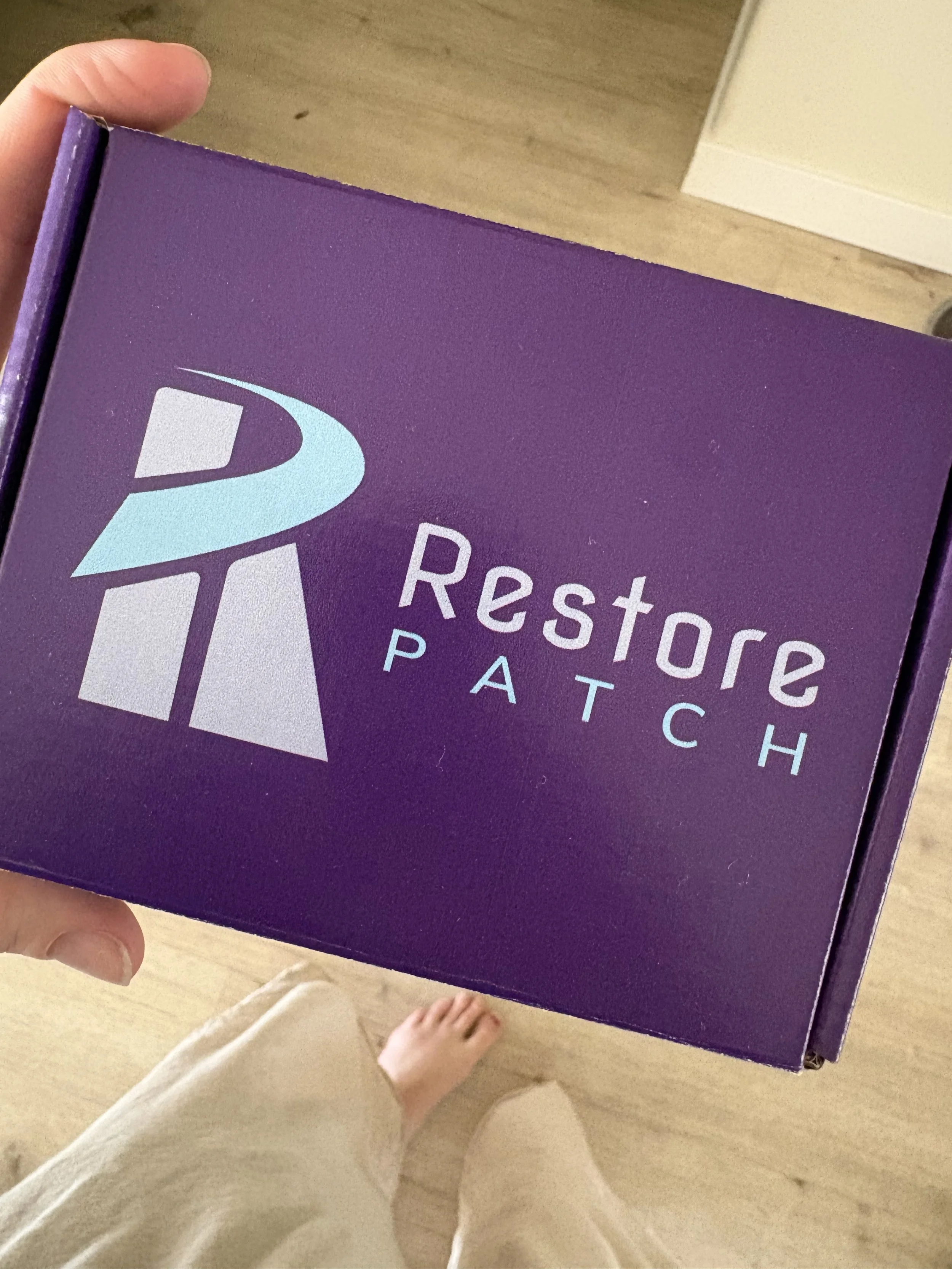
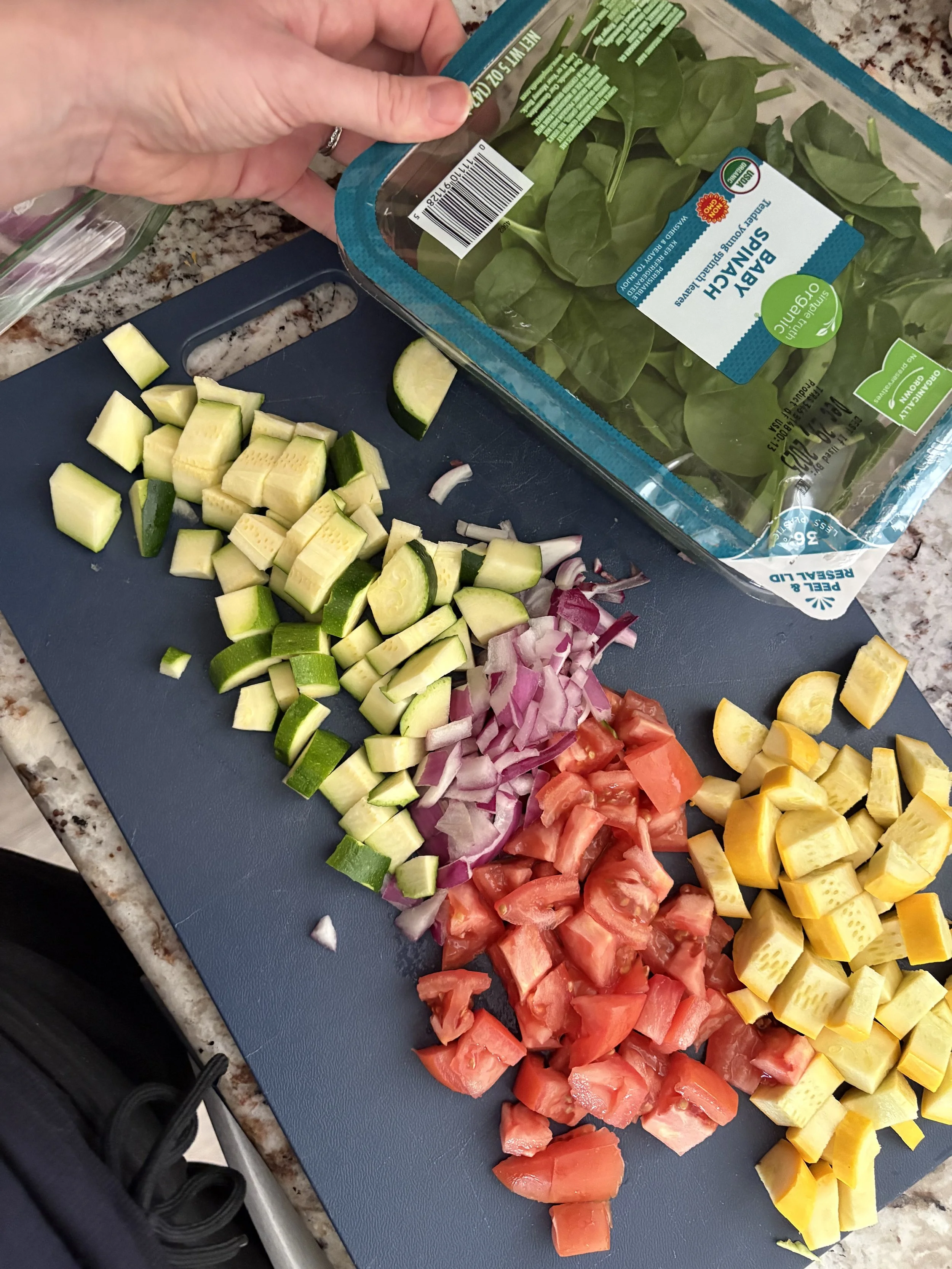
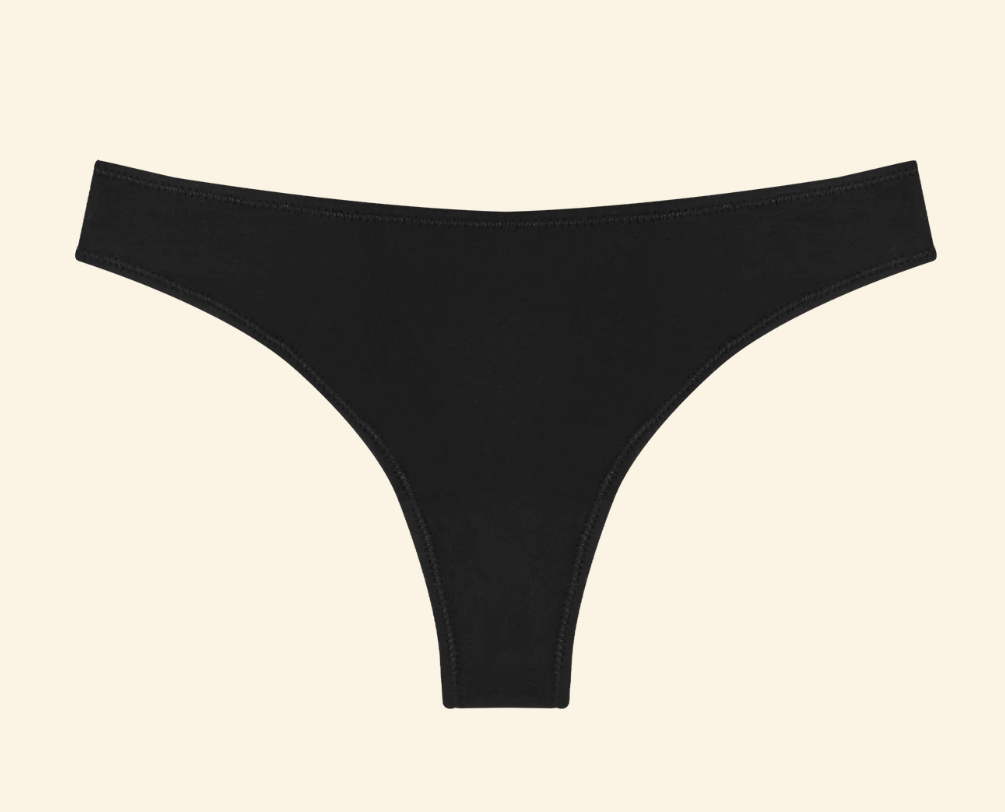



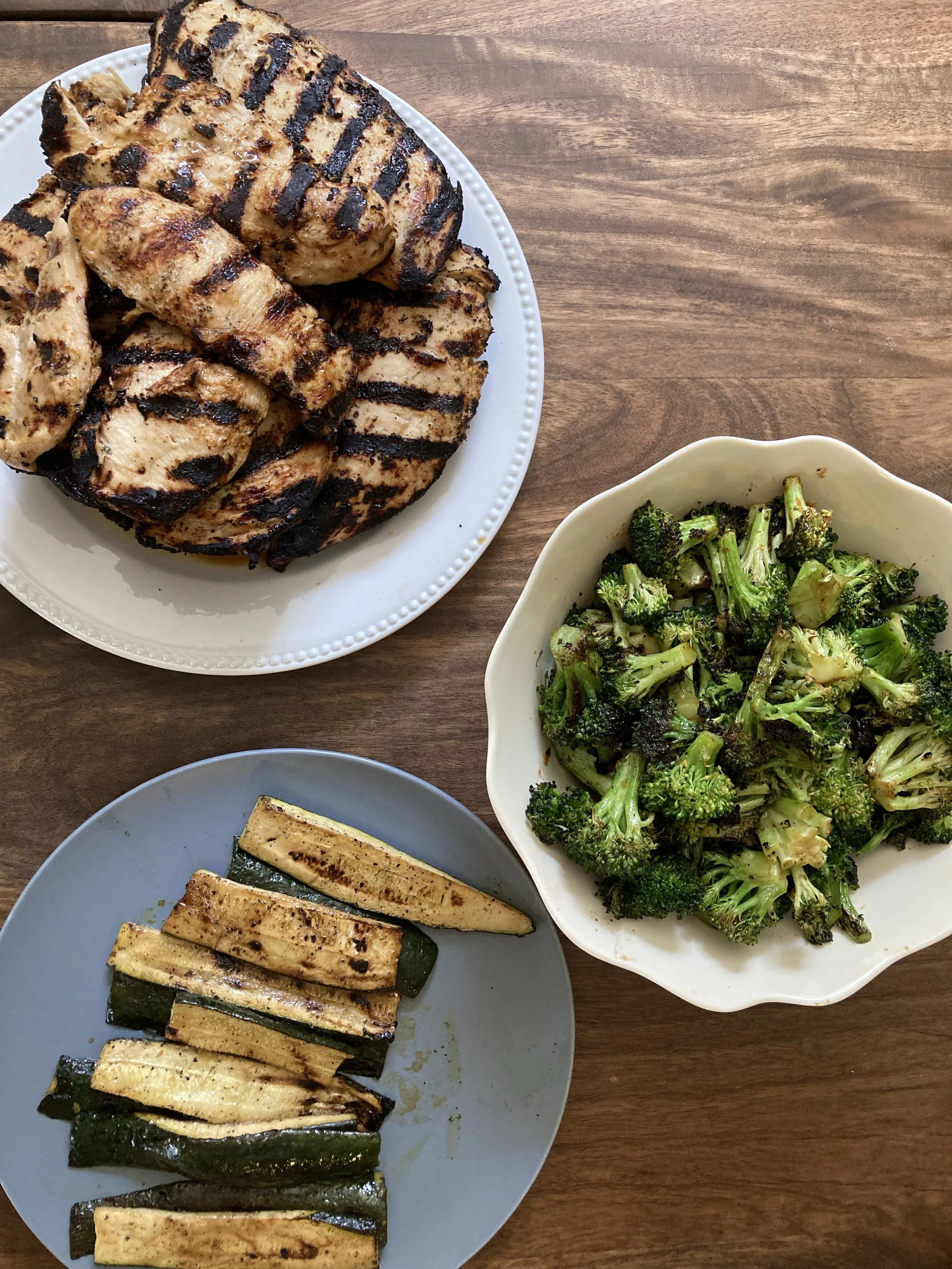



What is self-care actually?? This post explores what actually supports our wellness.. and all ideas shared take 5 minutes or less 👏